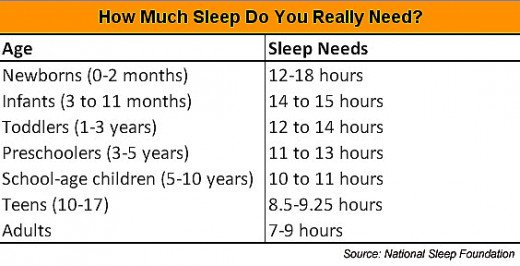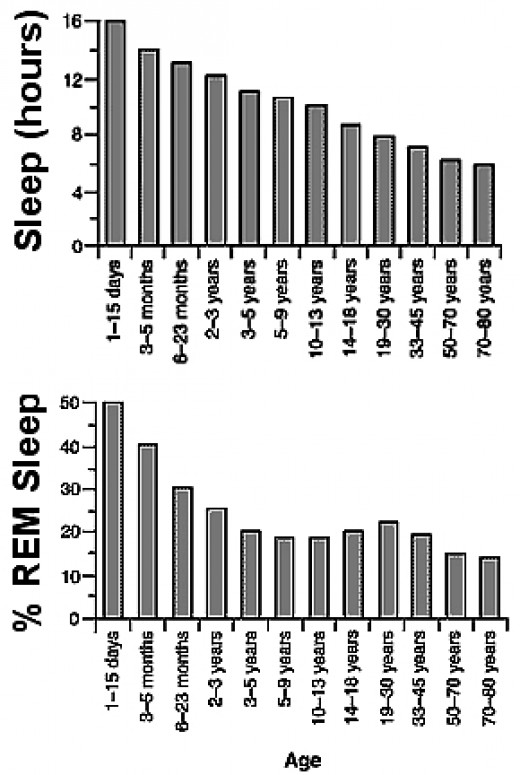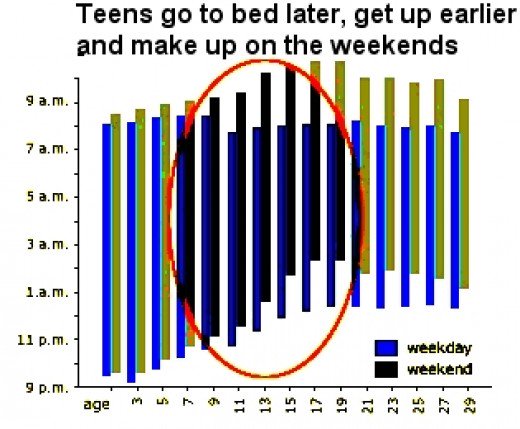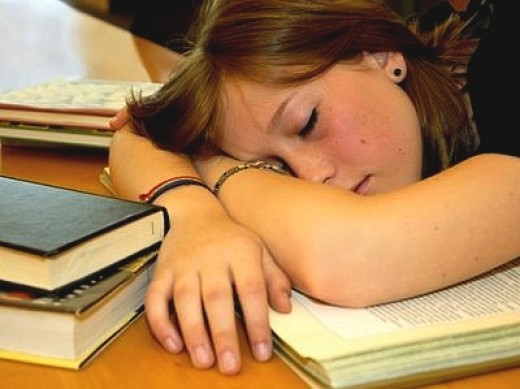Better-Sleeping-Tips-and-Good-Sleep-Guide That Works
Lack of sleep, either done willingly or through insomnia, affects people's memory, concentration, physical performance, even the performance of the immune system. People are more likely to feel stressed and are more accident-prone if they are sleep deprived. During the Christmas party season and at other times it is important to get enough sleep. This articles looks at some tactics and strategies that may help you get a good night's sleep.
A recent survey of 1500 people in Australian found most were missing out on about one hour or sleep a day by only sleeping for seven hours rather than the recommended average of eight hours. The worst sleepers
were those in their later teens or early twenties (18-24 year-olds). More than a third of those interviewed reported that they woke several times throughout the night.

Sleep Disturbances
Why do people struggle to get a full night's sleep?
- the room is too bright, noisy or warm;
- too much red wine after a heavy dinner;
- stress;
- drinking coffee or caffeinated drinks too close to the time to go asleep
- shift work;
- depression;
- having a new baby;
- having irregular activity patterns
All of these disturb your sleep and the effects of these and many other sleep disturbers can accumulate. many people do not suffer from chronic insomnia - they do it to themselves by inappropriate behaviour.
Night Cycles
Even during the eight hours of recommended sleep we seldom sleep right through the entire period. Research has shown that when people go to sleep, the first hour is usually very deep sleep. However after about 90 minutes there is a period of much lighter sleep This is characterised by rapid eye movements or dreaming for a short period of time before we return to deep sleep again.
Often we wake up for a short time during these periods of light sleep. It is normal for most people to wake up briefly in regular cycles throughout the night.
Research has shown that deep sleep is necessary for physical recovery from work or other exertion. People such as laborers, who do a great deal of physical work generally have longer periods of restful deep sleep. On the other hand when we are troubled by something or are trying to work things out mentally we tend to have more Rapid Eye Movement (REM) sleep. It appears that REM sleep is required for working things out mentally and for cementing our memories.
Sleep Strategies
If you have been having lots of stressful late sessions at work, you have been working late or partying, or your new baby has been depriving you of sleep, what is the best way to recharge your batteries?
Well, surprisingly the Mediterranean siesta may be one good solution for a catch-up. Research has shown that our bodies are designed to have two sleeping periods every 24 hours. This can be a single 8 hour sleep period, or perhaps 6-7 hours at night with a short nap of about 30-45 minutes in the early afternoon. While this works the trick is not to sleep no longer than 45 minutes, to prevent disrupting our biological clocks. This can work wonders on the weekend to make up some sleep time.
Mothers with new babies have for a long time been advised to sleep when their baby does, irrespective of the time of day, in order to 'make up for on missed sleep during the night. These short naps don't progress to a deep sleep but helps keep mums mentally refreshed and able to cope well for the rest of the day.
Resting as well as Sleeping
What if you just cannot sleep? According to sleep physicians the problem is often linked to being in bed and not sleeping - tossing and turning. It is often better to break the cycle by get up and going to a quiet, dark place for a short period of time. When you feel tired and ready to sleep, go back to the bedroom. Resting can be just as beneficial as sleep but it needs to be totally inactivity and not resting while watching TV. Some researchers claim that sleep itself is not enough and it needs to be accompanied by mental, social and physical rest.
Ten Ideas for a Good Night's Sleep
- Ensure your sleeping environment is suitable in every way to a good night's sleep. Make sure you have a comfortable pillow and mattress in a quiet, dark room. Also ensure that you are warm (but not too hot) and the room has good ventilated (but is not too cold).
- If you have something on your mind that is troubling you, write it down and outline the steps you need to address it before you go to bed. Stress and unresolved problems feeds insomnia.
- Regular exercise helps you sleep soundly - but do it well before you go to bed.
- A huge meal or too many alcoholic drinks before bedtime will often cause tossing and turning and disturbed sleep during the night. Don't eat in the two hours period before you go to bed.
- Avoid consuming caffeine in coffee and sodas in the late afternoon and evening. This applies even to those who drink a lot of coffee.
- Allow enough time to wind down from the stresses of the day and to relax. Don't watch a thriller or do something mentally engaging in the hour or so before bed. Do the boring computer chores late at night to ease down for bedtime.
- Try wearing an eye mask if your house becomes too bright in the morning before the time you normally get up.
- Don't work on your laptop or watch TV in bed.
- Try one of the many relaxation techniques that area available such as a visualisation technique or progressive muscle relaxation if you wake up and can't go back to sleep.
- Try to wake and get up at about the same time every day. While weekend lie-ins can help you catch up on missed sleep these lie-ins can interfere with your body clock and may make it harder to get back to your normal sleep pattern during the week.
Sleep Apnoea is Serious
Sleep apnoea is mostly caused by mechanical problems in the upper airway and people affected should seek medical attention. People with sleep apnoea usually get to sleep quite easily, and show symptoms of loud snoring and occasional gasping noises. They usually have problems getting into deep sleeps. Their frequent awakenings interrupts the progression into deep sleep as their breathing blockages wakes them up. There are a number of treatment methods.
What about Taking a Tablet?
Sleeping pills or tablets are not useful for treating long-term insomnia as the tablets become less effective with regular use.
Best Tips for Getting to Sleep
- Drink tea.
- Quit smoking.
- Ban your phone.
- Try meditation.
- Turn off the TV.
- Take a warm bath.
- Nix the nightcap.
- Smell some lavender.
- Sleep in a cool room.
- Wear socks on cold nights.
- Eliminate distracting noise.
- Conjure up a relaxing scene.
- Read a book as a prelude to sleep
- Try progressive muscle relaxation.
- Keep your dog or cat out of the bed.
- Ditch bed clothes that are no real pyjamas.
- Avoid caffeine several hours before bedtime.
- Eat lean protein or foods high in magnesium.
- Focus on relaxing words => calm => cosy => rest
- Revamp your sleeping position. (see the image below)
- Disconnect from your inbox - put your phone in flight mode
- Get some exercise well before bed so you are physically tired
- Write about the things that you are dwelling upon to clear your head.
- Don't try to sleep = sometimes the best way to fall asleep is to simply not try to sleep.
- Go to the bathroom just before going to bed to clear out your system to stop interruptions.
- Do some calming yoga poses to help you relax - Undo the stress of the day by stretching out.
- Try some breathing techniques - Taking proper breaths can calm your systems down and prepare your body for sleep.
- Get out of bed if you toss and turn -If you haven't drifted off after 20 to 30 minutes, get up and go to another room.
- Reserve the bed for sleep and sex only - Your bed should be a haven for sleep. De-clutter to remove all the distractions.





